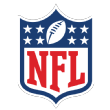If it's December, the best quarterback in the NFL must be ... Blake Bortles?
That can't be right, can it? The same Blake Bortles who got benched in training camp for Chad Henne and was maybe going to get cut before the season even started? The Bortles who threw 51 interceptions and just 69 touchdown passes his first three years in the league? Who ranked 27th in passer rating and 21st in Total QBR over the first three months of this season, even while his team was going 7-4?
Yeah, same guy. Since December dawned, no quarterback in the NFL outranks Bortles in passer rating, Total QBR, yards per attempt or touchdown passes. Over his past three games, Bortles has completed 71.4 percent of his passes for 903 yards, seven touchdowns and not one single interception. The Jags are averaging 35 points per game in December and have locked up their first playoff appearance since the George W. Bush presidency, and out of nowhere Bortles has transformed from a please-don't-mess-it-up quarterback into a dart-throwing dominator.
The result is Bortles as a surprise potential entrant onto the intriguing quarterback market of 2018. The Jaguars always were going to have to address Bortles' contract situation and future with the team after this season, but their success and Bortles' suddenly prominent role in it change the calculation. If he keeps playing this way, and if the Jaguars make the deep playoff run of which their dominant defense and running game make them eminently capable, they will go into the offseason with a different opinion of his place in their future than they might have had if they'd decided on it in August.
Last offseason, the Jaguars picked up their 2018 contract option on Bortles. That amounts to a one-year, $19.053 million contract. At this moment, that salary is guaranteed only against injury. As of the start of the 2018 league year (4 p.m. ET on March 14), it would become fully guaranteed, which could swing some leverage back Bortles' way.
The Jaguars will have three basic options for handling Bortles' contract situation this offseason:
1. Try to sign him to an extension. This would entail basically tearing up the option year and adding a year -- or a few years -- to the deal beyond 2018. The team would want to do this if it decided to commit to Bortles long term. But since his history makes him difficult to trust, it's unlikely the Jags would want to do a top-of-the-market quarterback deal that pays him the $25 million or $27 million a year guys like Derek Carr and Matthew Stafford were getting when they did their extensions this summer. More likely would be a deal similar to Sam Bradford's Eagles deal (two years, $35 million) or Tyrod Taylor's Buffalo deal (five years, $90 million but with only the first two years and $37 million guaranteed).
The question is whether Bortles would want to do a deal like that. Once 4 p.m. on March 14 hits, he has $19 million guaranteed regardless, and he could decide he wants to Kirk Cousins this thing. By betting on himself he could try to put up big numbers with a good team around him and position himself to cash in with some real big-time QB money once he makes his way to the open market. One NFL contract negotiator, discussing this situation hypothetically, said a team in this situation would have to make such a deal as appealing as possible to the player, possibly by loading up the front end with a big signing bonus and/or accelerating the schedule of the guaranteed-money payout.
When assessing the chances of this option, it's worth noting that Bortles' agents -- the California-based Tollner brothers -- also represent Marcus Mariota, Carson Wentz and Jared Goff, and would surely be conscious of setting too low a "floor" on which to base the big quarterback deals to come. That's not to suggest an agent would go against his client's will for his own benefit, just that the people representing Bortles are conscious of his place in the bigger quarterback-contract picture, and that's a factor to consider when forecasting outcomes here.
2. Let him play out the year on the option. Even if Bortles and the Jaguars do deliver the big finish their hot December start seems to promise, it would be fair for the Jaguars to effectively tell him they need to see him do it again before they commit. In this case, they could simply do nothing, let the option year guarantee on March 14 and put this whole decision off for a year knowing they have an approximately $24 million to $25 million franchise tag at their disposal in 2019 if he plays out of his mind.
3. Let him walk. This seems like the least likely option at this point, considering all the good stuff the Jaguars have going on there. The only reason it's even possible is that this offseason seems to offer more interesting potential quarterback replacement options than usual. There are some intriguing quarterback prospects in the 2018 draft, and the veteran free agent/trade market could include players such as Cousins, Bradford, Taylor, Eli Manning, Alex Smith, Case Keenum and Andy Dalton.
If the current Jaguars administration, which wasn't in place when he was drafted, decides it prefers some other option than a $19 million Bortles, he could find himself on the open market after a strong second half in which he led his team to the playoffs. That would make him one of the more interesting names on that list of available quarterbacks and probably offer Bortles the clearest path to landing a really big quarterback contract in the near future.
Not even the Jaguars foresaw the December of Bortles. This was a team built on its running game and defense, that lost its top wide receiver to a knee injury in Week 1 and that sat down Bortles for Henne after a preseason performance dismal enough to make Jacksonville wonder whether he could even meet the do-no-harm standard the Jaguars believed their best-laid plans would require of him.
But confidence matters, and this is by far the best Jaguars team Bortles has had around him since he was the No. 3 pick in the 2014 draft. After a few months of just trying to keep the car out of a ditch, Bortles has grabbed the wheel and is speeding it toward the postseason. December and January are the months in which quarterbacks make their legacies and their money. The timing might be right for Bortles to be rewriting his own story and taking it in a fun new direction.
A few other things Week 15 did and didn't teach us:

The 49ers probably have their guy
Until they put pen to paper on the Jimmy Garoppolo extension, there's always the slim chance the 49ers could zag. Had Garoppolo not looked good in his late-season audition following the trade that brought him from New England, the Niners could have let him go and made their long-expected pitch for Cousins. But Garoppolo, who is set to be a free agent, looks fantastic. Over those same three weeks we used for the Bortles sample, Garoppolo is fourth in Total QBR, second in yards per attempt and has won three games in a row with a team that hadn't won any when he got there. The 49ers could extend Garoppolo at any time, even before the end of the season. Given the way he has played, the amount of cap space they're projected to have and the way the team has come to life since he became the starter, it would be a huge upset if the Niners didn't lock up Garoppolo before the market opened in March.

The Seahawks' offseason will be one to watch
Seattle has made the playoffs five years in a row, won an average of 11 regular-season games a year over that time, won one Super Bowl and came as close as possible to winning another. But the Rams served authoritative notice Sunday that things have changed in the NFC West. L.A. went up to Seattle and dominated the Seahawks with a performance that seemed to signal the end of something. Seattle has major financial decisions to make on defense, as Bobby Wagner ($13.6 million), Richard Sherman ($13.2 million), Earl Thomas ($10.4 million), Kam Chancellor ($9.8 million), K.J. Wright ($8.2 million) and Cliff Avril ($8 million) all carry heavy 2018 cap charges, and the Seahawks probably can't keep them all. Seattle's front office knows what it's doing, and loading up on defensive backs in this year's draft was part of a plan that acknowledges the coming overhaul. It will be fascinating to watch general manager John Schneider maneuver as he tries to maintain the winning status quo while transitioning from this brilliant, championship group to whatever comes next.

Replay is a scourge that needs to be eradicated from sports
If you follow me on Twitter (@DanGrazianoESPN), you heard a lot of this Sunday night. But while everybody was shouting about the validity and the application of the NFL's byzantine catch rule in the wake of the Steelers-Patriots ending, I couldn't help but think this was a symptom of a bigger and sadder problem. The replay review system in sports has simply gone too far. There are too many reviews of too many tiny specifics that just don't matter enough to the final outcomes to justify the negative impact on the watchability of the games.
The counterargument, especially as it pertains to Pittsburgh-New England, is too familiar. "The most important thing," it goes, "is to get the call right." But is it? I mean, to the teams and the players, it might be. But why do we, as fans and consumers of this product, have to line up with the teams and players on this issue?
Replay reviews are almost never entertaining. There are some that come with drama, but more often than not they are interruptions in the action that result in either affirmation of what was originally called or some vague, controversial interpretation of a rule or a spot or a millimeter of movement here or there. They create more problems than they solve, and they feed into one of the biggest current problems with sports -- the hyper-focus on officiating.
As long as officials are human, there will be mistakes. Treat officiating as a game condition, like weather or bad bounces, and it becomes a lot easier to tolerate. You're upset that you lost on a bad call, but as the days move along the pain subsides and you realize bad breaks happen and life goes on. We try to teach the kids we coach not to focus too much on calls they don't like, yet we have cottage industries devoted to breaking down and analyzing every aspect of officiating. It's paralyzing.
Replay was supposed to help fix egregious mistakes, not every single tiny one. Those who didn't want it in their sports warned of a slippery slope to the latter, and I worry that here we are. Personally, I don't watch sports in search of perfection and infallibility. I watch it to be entertained. As the NFL moves forward and evaluates its replay system, and as players and coaches insist on more, more, more in the interest of fairness to all, I hope the league pays at least some attention to the damage the proliferation of replay does to the entertainment value of its product. I'd like to see less replay, not more. And if calls get missed because we decide not to apply all potential technological assistance to make sure they don't, I'm willing to bet -- if we try -- we can all find a way to live with it.
